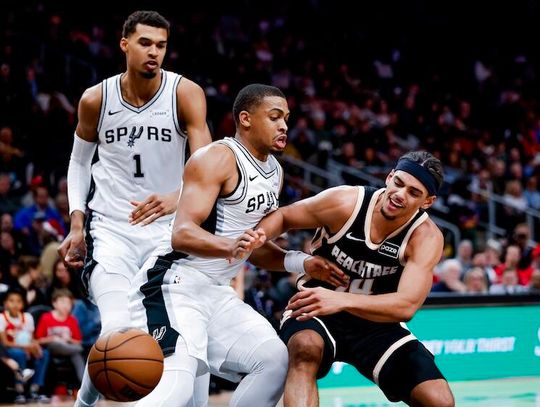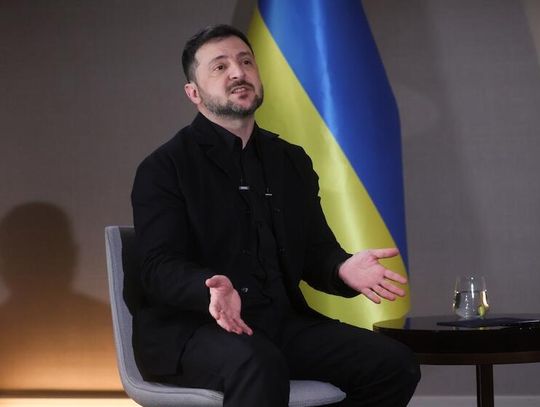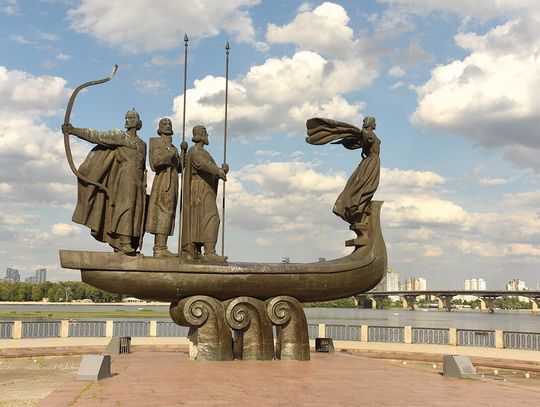Moja mama nagle zaniemówiła.
Dopadły ją wspomnienia.
W jednej chwili siedziała naprzeciwko mnie przy kuchennym stole i opowiadała o swoim rodzinnym domu w polskim lesie, o tym jak bardzo lubiła ten dom i jak piękny był o każdej porze roku, a chwilę później zamilkła. Znowu wciągnęła ją przeszłość, czasy kiedy jej matka wciąż żyła, wciąż kochała i była kochana. Wyraz twarzy mojej mamy, ten grymas przerażenia oznaczał, że moja mama nie chce opuścić tego miejsca w przeszłości, ponieważ po nim nadchodzi świat, w którym jej mama jest mordowana przez Niemców kilkoma strzałami w twarz i zostawiona martwa na kuchennej podłodze.
Moja mama otworzyła nagle usta i powiedziała „och” i „nie” oraz wydała z siebie kilka innych dźwięków wyrażających bezsilne oburzenie, ale nie padły żadne słowa. Było tylko to słowo, które słowem w sumie nie jest, a jednocześnie jest słowem każdym. To pierwsze słowo w języku żałoby , kiedy w wyschniętym gardle mojej mamy ugrzązł szloch, który urodził kolejne dzieci bólu, jedno za drugim, a gardło i oczy mojej mamy wypełniły się łzami oraz bólem, od którego nie ma ucieczki.
Przestraszyłem się. Wiedziałem, że nie mogę tego powstrzymać. Nikt nie mógł. Byłem tak samo bezsilny, jak ona. Zdarzyło się przecież coś niewyobrażalnie strasznego, a dla mojej mamy ta potworność nigdy się nie skończyła. Świat nawiedziło zło i od chwili swojego nadejścia to zło wypełniło każdy moment życia mojej mamy, dotknęło każdej chwili i zbliżyło się na tyle, że nie pozwoliło nigdy o sobie zapomnieć, otrząsnąć się z niego.
Popatrzyłem na moją mamę. Wyglądała na zagubioną i bezsilną, tak jak i ja byłem zagubiony i bezsilny. W tamtym momencie chciałem chwycić za jakiś pistolet i zastrzelić tam na miejscu tę istotę, która wtargnęła do naszej kuchni i zawładnęła duszą mojej mamy. Ale wiedziałem to, co wiedziała też moja mama. Żaden rewolwer, pistolet ani kula nie mogły zranić tego czegoś, co dotknęło moją mamę i zabiło w jej wnętrzu sekretne święte miejsce. Żadna kula nie mogła przywrócić do żywych matki mojej mamy.
Cholerny świat.
Płacz mojej mamy nie mógł w żaden sposób nas z niego uwolnić.
My Mother Remembers Her Mother’s Death
My mother stopped speaking.
The memory had caught her.
One-minute she sat there at the kitchen table in front of me, telling me about her home in the woods in Poland and how she loved that home, its beauty through every season, and then she wasn’t. She was in the past again where her mother was still alive, still loving, still loved, and it was clear from the look of terror on my Mother’s face it was a past my Mother didn’t want to leave because she knew leaving the past meant entering a world where her mother had been murdered by the Germans, shot in the face over and over, and left on the kitchen floor.
My Mother suddenly opened her mouth to say “oh” or “no” or some other word of useless, powerless outrage, but the word never came. Instead, there was the word that was no word and yet every word. It was the first word in the language of grief, the dry mother sob that caught in her throat and gave birth to one painful child after another until her throat and her eyes and her mouth filled with tears and a pain she could never escape.
It scared me. I knew I could not stop it, no one could stop it. I was as powerless as she was. A terrible thing had happened, and for my Mother this terrible thing would never end. An evil had entered the world; and from the moment it entered, this evil would frame every other moment of my Mother’s life and touch every other moment and bring it close to an evil that she would never forget, never shake off.
I looked at my mother. She looked confused, lost, powerless, just as confused, lost, powerless as I was. I wanted to grab some gun and kill the thing that had entered the room and staked out its claim on my Mother’s soul. But I knew what my Mother also knew. No gun or pistol or bullet could ever touch the thing that touched my mother and killed some holy place in her. No bullet would ever bring my Mother’s mother back.
A hell of a world.
And my Mother’s sobs could do nothing to free her or me from it.
John Guzlowski
amerykański pisarz i poeta polskiego pochodzenia. Publikował w wielu pismach literackich, zarówno w USA, jak i za granicą, m.in. w „Writer’s Almanac”, „Akcent”, „Ontario Review” i „North American Review”. Jego wiersze i eseje opisujące przeżycia jego rodziców – robotników przymusowych w nazistowskich Niemczech oraz uchodźców wojennych, którzy emigrowali do Chicago – ukazały się we wspomnieniowym tomie pt. „Echoes of Tattered Tongues”. W 2017 roku książka ta zdobyła nagrodę poetycką im. Benjamina Franklina oraz nagrodę literacką Erica Hoffera, za najbardziej prowokującą do myślenia książkę roku. Jest również autorem dwóch powieści kryminalnych o detektywie Hanku Purcellu oraz powieści wojennej pt. „Road of Bones”. John Guzlowski jest emerytowanym profesorem Eastern Illinois University.
—
John Guzlowski's writing has been featured in Garrison Keillor’s Writer’s Almanac, Akcent, Ontario Review, North American Review, and other journals here and abroad. His poems and personal essays about his Polish parents’ experiences as slave laborers in Nazi Germany and refugees in Chicago appear in his memoir Echoes of Tattered Tongues. Echoes received the 2017 Benjamin Franklin Poetry Award and the Eric Hoffer Foundation's Montaigne Award for most thought-provoking book of the year. He is also the author of two Hank Purcell mysteries and the war novel Road of Bones. Guzlowski is a Professor Emeritus at Eastern Illinois University.
fot.pxhere.com










